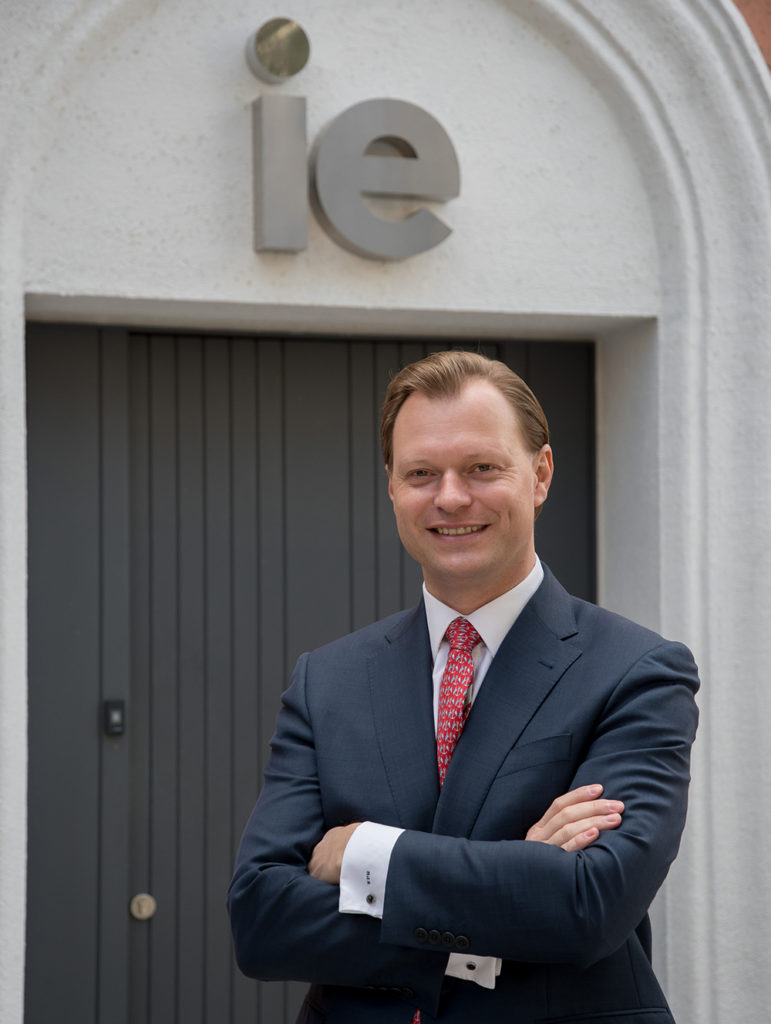Finance Director Europe speaks to Martin Boehm, dean of IE Business School, about what executive education means for the world of finance

Times, though, are changing. In the near future, business professionals will need more than the information acquired in the standard school and university model
The finance function has undergone rapid evolution in recent years, with professionals in this space evolving from bean counters to business partners. In today’s fast-changing world there is a need to constantly refresh one’s skill set to stay at the cutting edge. Finance Director Europe speaks to Martin Boehm, dean of IE Business School, about what executive education means for the world of finance.
Through experience, everyone is familiar with the traditional paradigm of education. There is a clear path through school, where students get a grounding in many subjects and discover an aptitude for some. Then they gradually specialise through university, before applying those specialist skills to a job.
Times, though, are changing. In the near future, business professionals will need more than the information acquired in the standard school and university model. They will need personal skills, leadership qualities and a more highly developed creative capacity to go along with their technical competency.
This is true of those working in the finance function and in most other areas of business. As such, the resources and programmes for this type of education must be available, and business schools will consequently need to adapt to the marketplace and bring these qualities to the foreground.
“We help students to develop an entrepreneurial mindset for an age defined by constant change,” says Martin Boehm, dean of IE Business School in Madrid. “We try to develop a more holistic view of the world among our students, so that they can become great business leaders and great human beings.”
Boehm, who still teaches as a professor of marketing, but mainly oversees the operations of the school, is a firm believer in the value of lifelong learning, especially in today’s rapidly changing business environment. The fast pace of business and decision-making, facilitated in part by unceasing advances in technology, means that undergraduates and experienced executives alike need to be prepared to refresh their skill sets more frequently than ever before.
“Continued learning is important for business leaders and their teams,” remarks Boehm. “The traditional model is to gain basic general competency at degree level, then specialise in the post-graduate phase. This has worked well until now, but the model needs to evolve. Professionals need to specialise every five or 10 years. They need to evolve, to reinvent themselves.”
Upskill the executive Founded in 1973, IE Business School has been a part of IE University since 2009. In Boehm’s words, the school is a full-service, mid-sized higher education institution. Around 5,000 students are enrolled in its degree programmes at present, which encompasses undergraduate and post-graduate courses.
Students can study for a bachelor’s degree in business administration, with the addition of data and business analytics, international relations or law. A full suite of MBA and executive MBA courses, master’s degrees and doctorate courses are also on offer, but one area growing in popularity is executive education. Here, business professionals come to refresh or renew their skill sets with shorter programmes, lasting anywhere from three days to two months.
“There are full-time and part-time programmes on offer, as well as a growing number of opportunities for online learning, which suits people who are balancing work and education,” explains Boehm. “Our programmes are trying to push boundaries. They are enriching, engaging and effective, and there is a strong focus on innovation.”
“We have relatively small classes – usually between 30 and 60 people – so that we can personalise the learning experience more,” he adds. “Executive education courses allow people to upskill in just a few days. That is important because of the pace of change. For instance, no one would have talked about big data or social media management a decade ago, so in 10 years the world will have moved on again to something new.”
The courses cater for a wide selection of people wanting to make headway in the business world, not only finance professionals, but the changes that technology and business organisation will bring may have a disproportionately high impact on finance. The function has great potential for the automation of key underlying processes, so finance professionals will need to continue their development and reinvent themselves.
Prepare for the future of finance
Change will affect every part of the business world and the finance function is no exception. In fact, it could look very different in a few years as more processes are automated in the name of efficiency.
“It is hard to predict the future, but there are some trends that will impact jobs,” observes Boehm. “In the finance function, AI will be important. People must ask themselves what tasks could be taken over by machines and that will probably be the repetitive tasks that machine-learning algorithms do so well. AI suits anything that follows predefined rules.

“From the CFO’s perspective, auditing and accounting will be done by a machine. With those processes automated, a team of accountants will need to generate insight to inform strategy for the organisation. The skills of human creativity, interaction and collaboration will be much more important, as will cognitive skills like problem solving.”
What could emerge in the near future is a shift in recruitment strategies, with a move away from people with quantitative and analytical skills – so called ‘right brain’ individuals – towards the more creative, inquisitive and insightful minds that are able to collaborate and communicate effectively.
Training these ‘left-brained’ individuals will require an approach that goes outside the traditional model of education. Recent pedagogical research suggest that creativity is fostered by learning with play. Hence, game-based learning is a growing feature of executive education courses at IE Business School and elsewhere as it elicits more engagement from the students.
IE Business School has been working closely with Barbara Ann Oakley, a professor of engineering at Oakland University, who is involved in multiple areas of research, ranging from STEM education to learning practices. Her work as co-creator of ‘Learning how to learn: Powerful mental tools to help you master tough subjects’, which is the world’s most popular online course, has informed the development of programmes designed to help executives become more effective at learning.
Such techniques could be essential for finance executives, as the demands of their job and the expectations of their output continue to change. Increasingly, subject matter expertise will get you in through the door, but success will depend on other skills – how to learn and adapt, how to lead, and how to develop relationships.
Innovation goes beyond technology
Just as technology is accelerating business cycles and decision-making processes, it is also shaping what and how people learn.
IE Business School is the first in Europe to offer a tech MBA. The course is designed to teach students about technology, management and transformational leadership in order to create professionals who can adapt to the fast and continuous pace of technological evolution.
The school also understands how technology can be used to make learning more accessible, more effective and more flexible but recognises, too, that new ideas about the learning environment are just as important as technological tools.
“To leverage new technology, we have invested a lot in simulations, game-based learning, AI and virtual reality,” says Boehm. “We believe in driving innovation in the learning experience. But it is also about fostering a diverse learning environment. We have 125 different nationalities on campus, however, nationality is not the only form of diversity here, it is also diverse in gender, experience and visions of the world. This creates the right breeding ground for learning to take place.
“One day, we might move to a ‘just-in-time’ learning model, in which professionals will be able to upskill in a few hours, in a modular fashion, to deal with specific tasks. The future of executive education will be shaped by leveraging technology, creating more modular programmes and focusing on new content, with less focus on specific knowledge and more emphasis on other competencies, such as learning how to learn. At IE Business School, all of that is happening now.”


